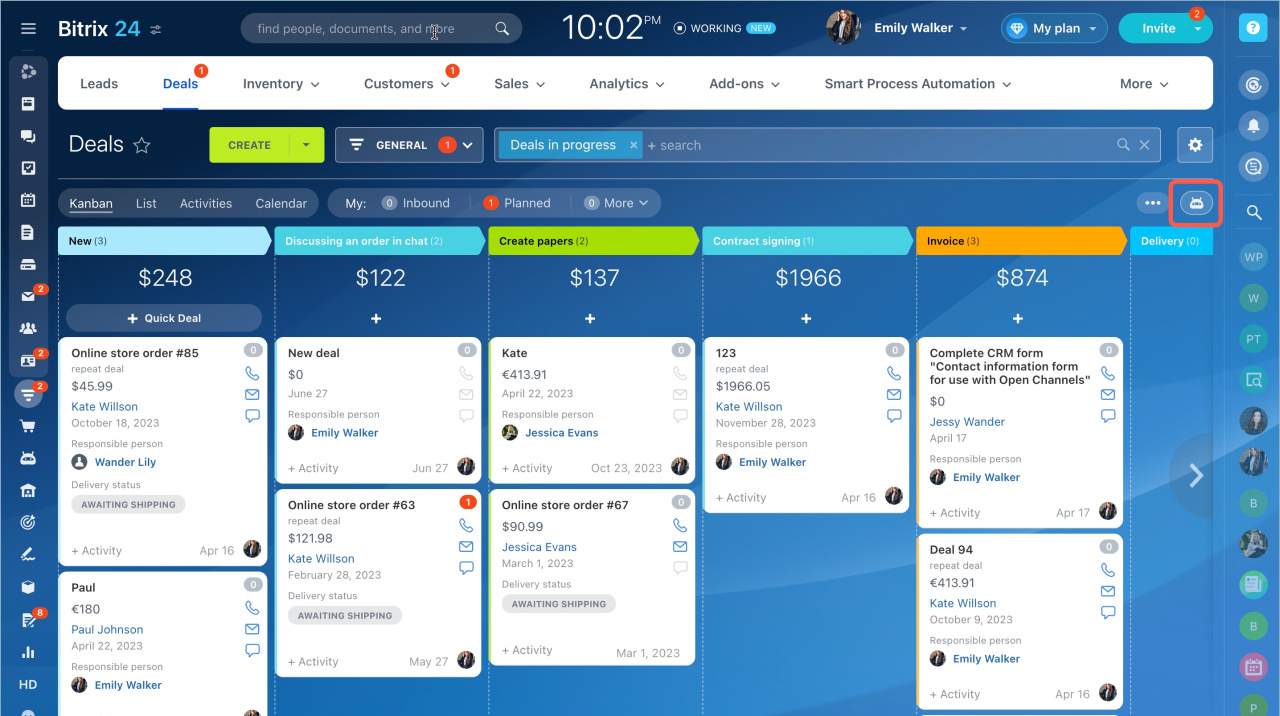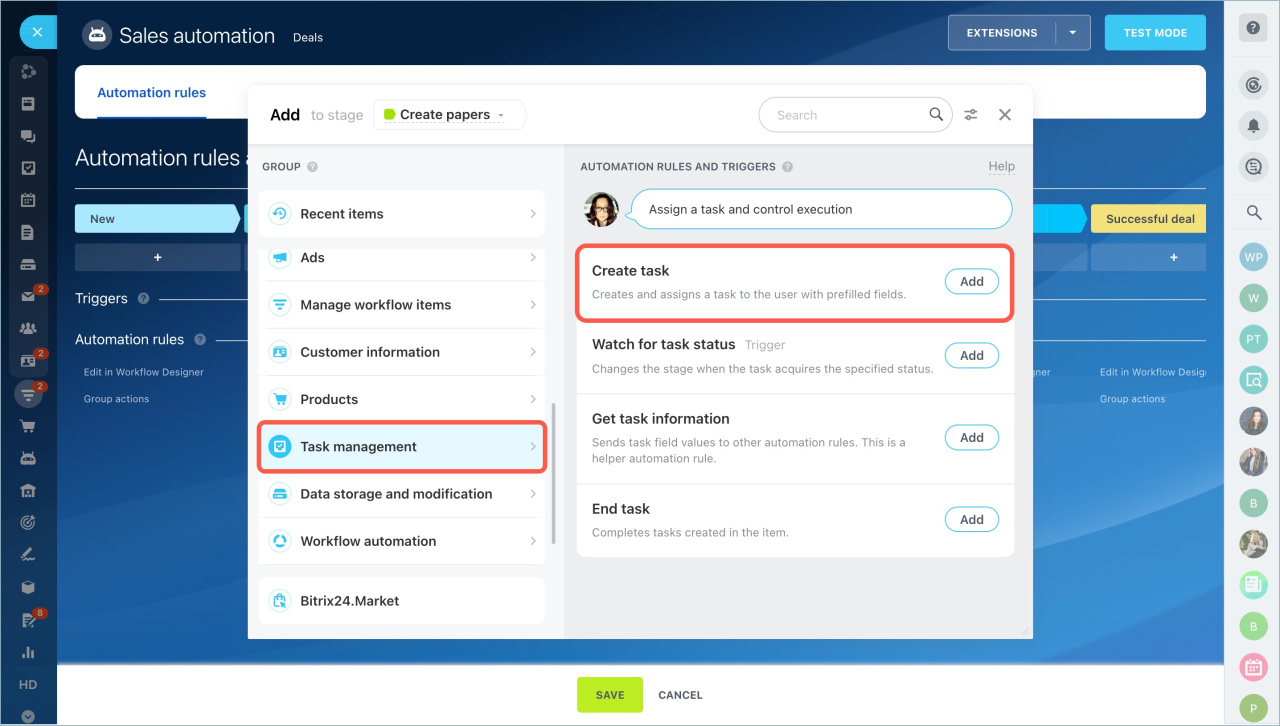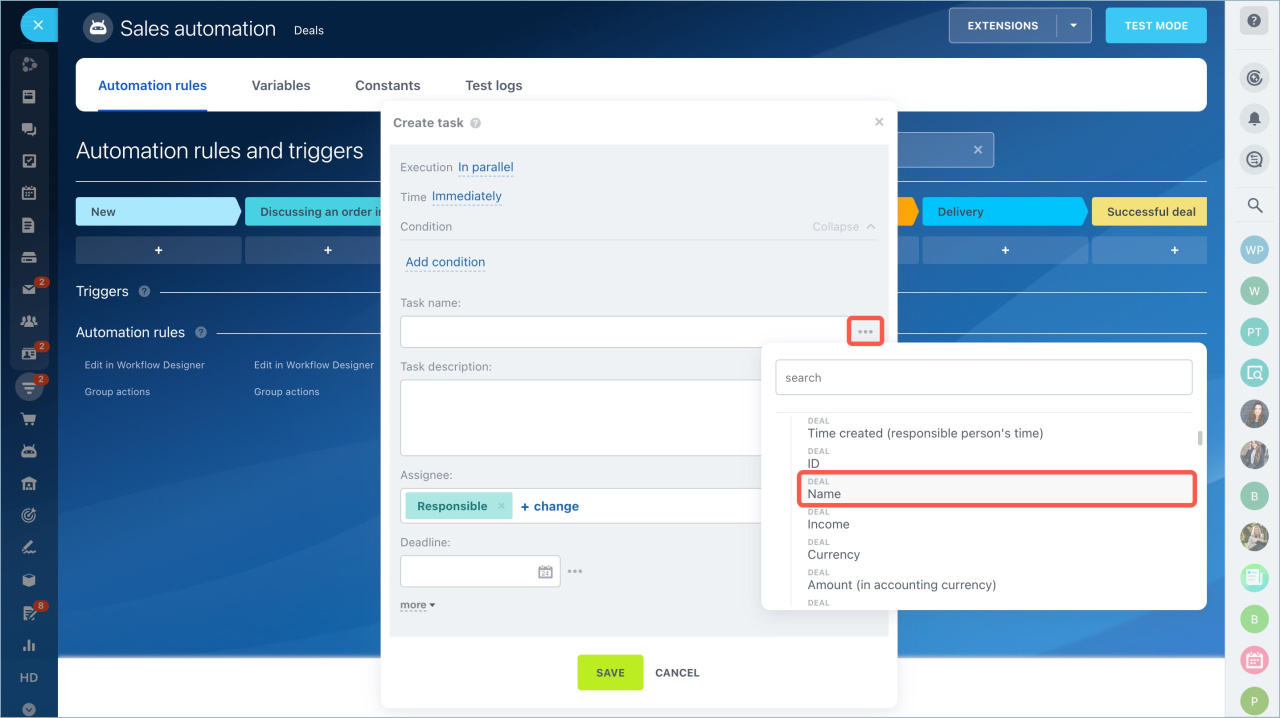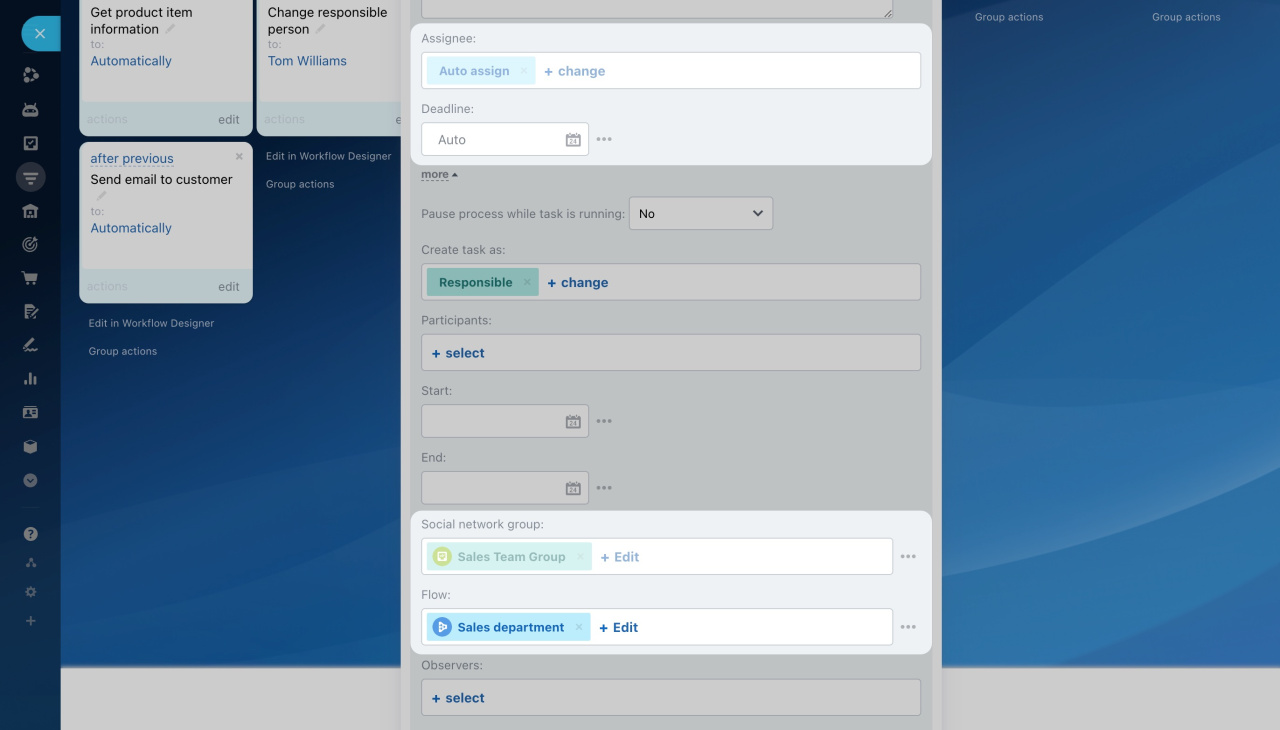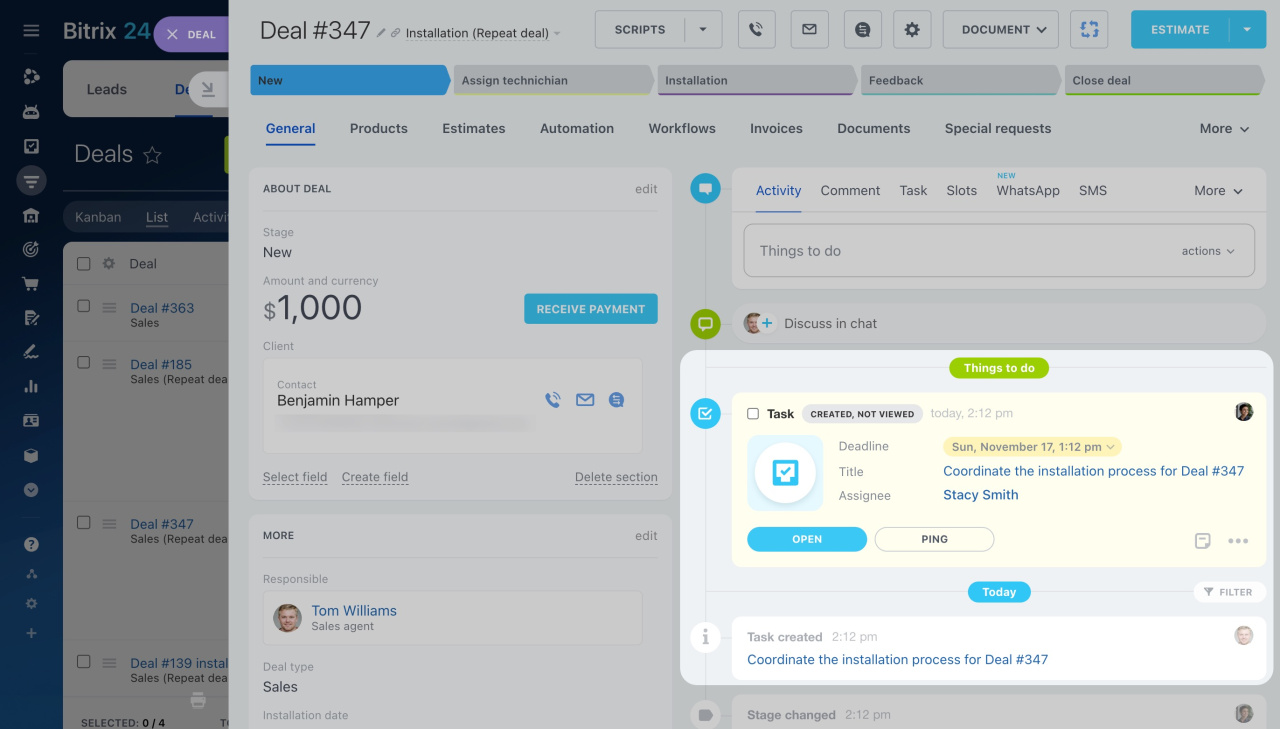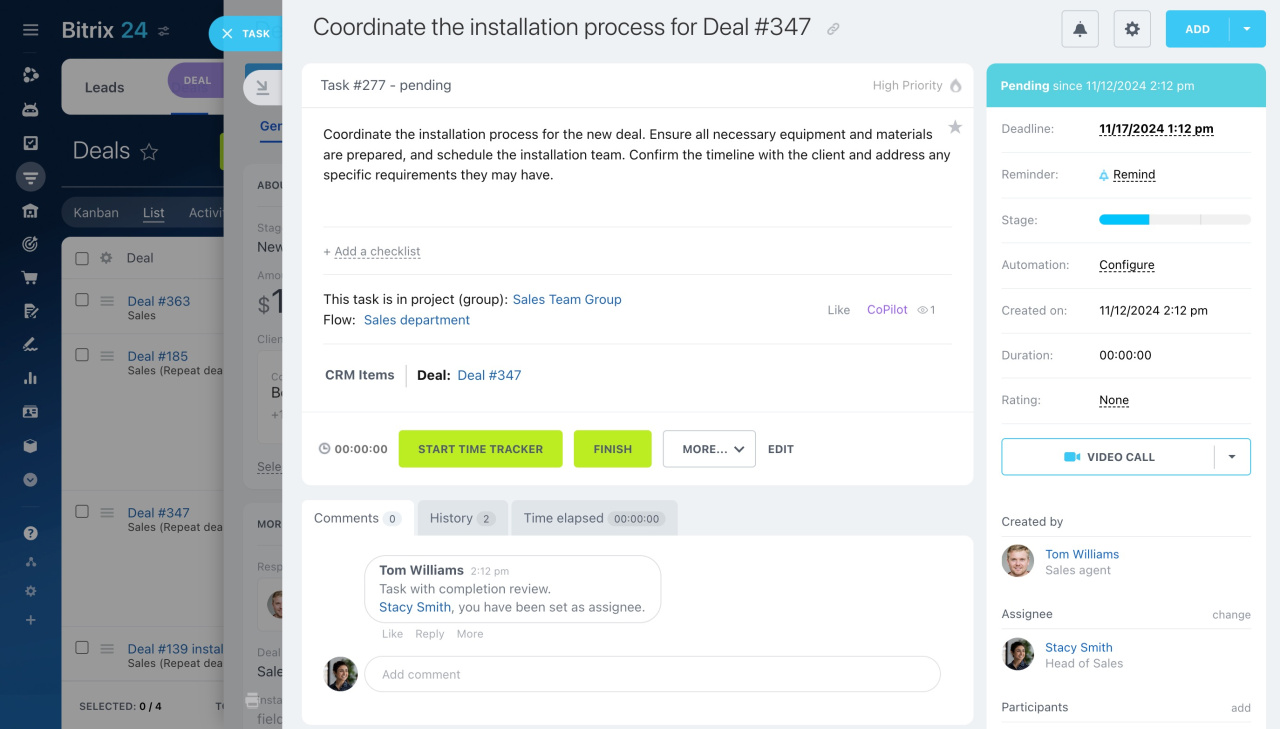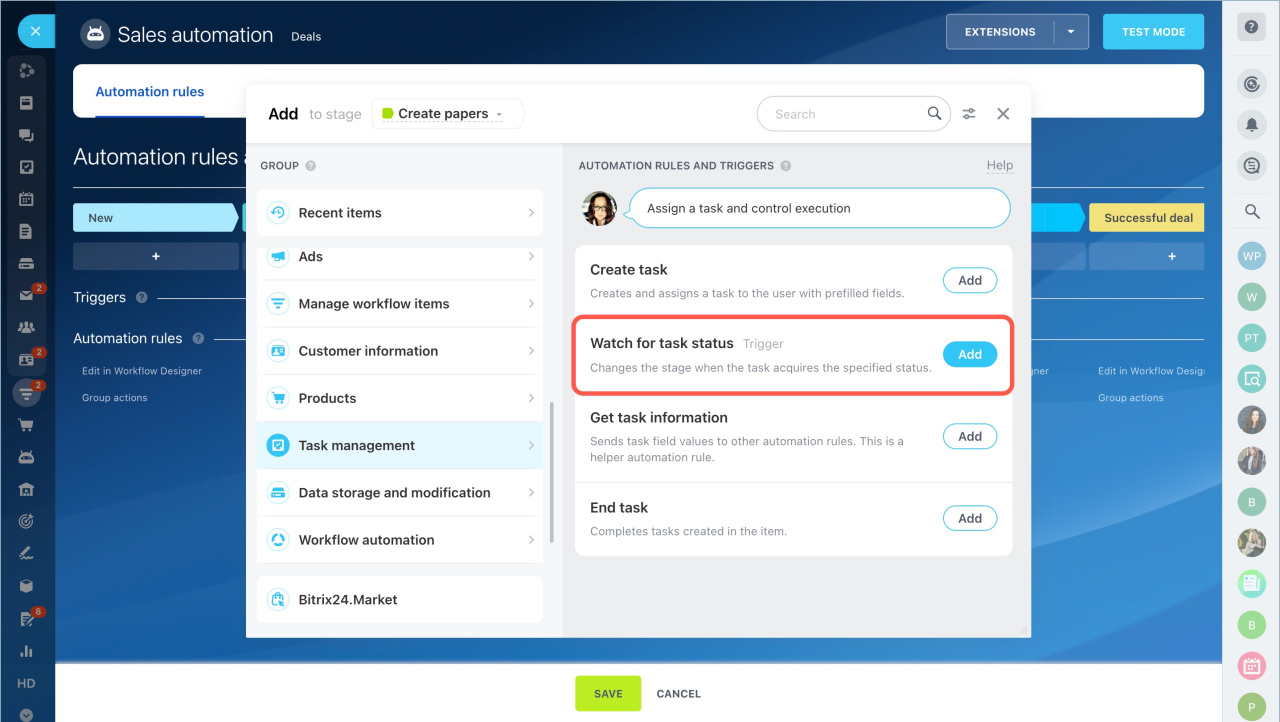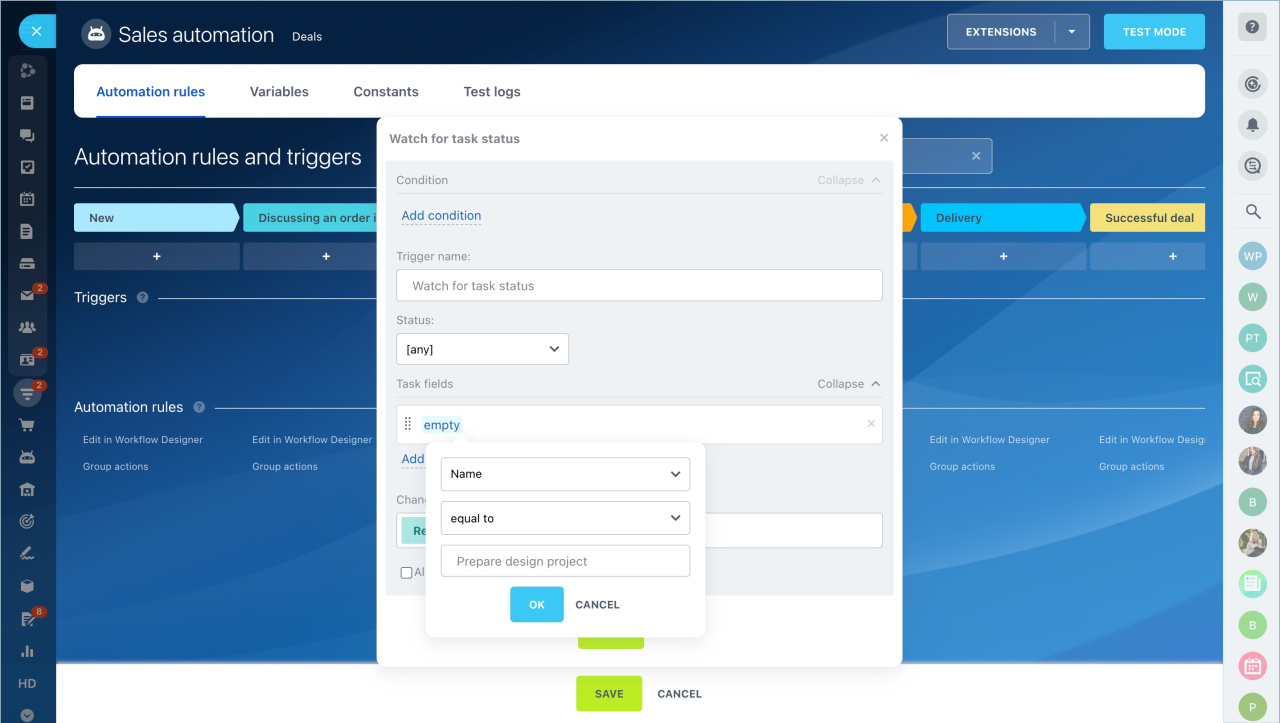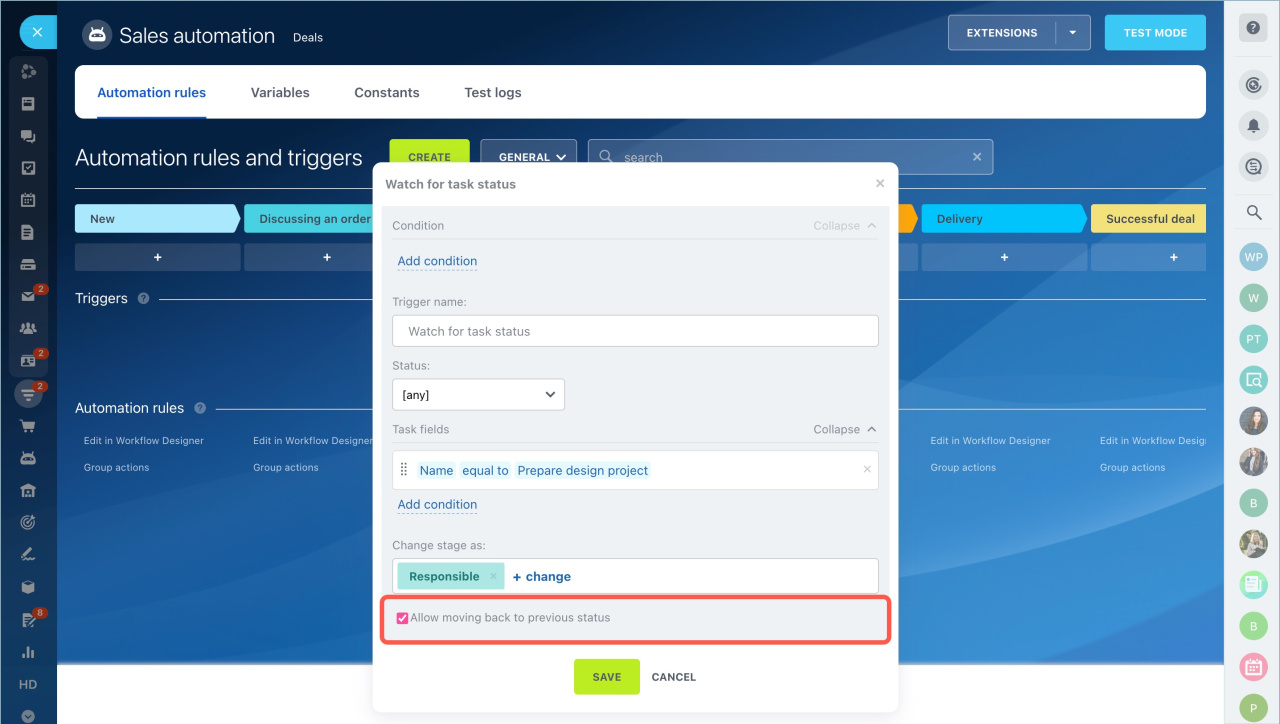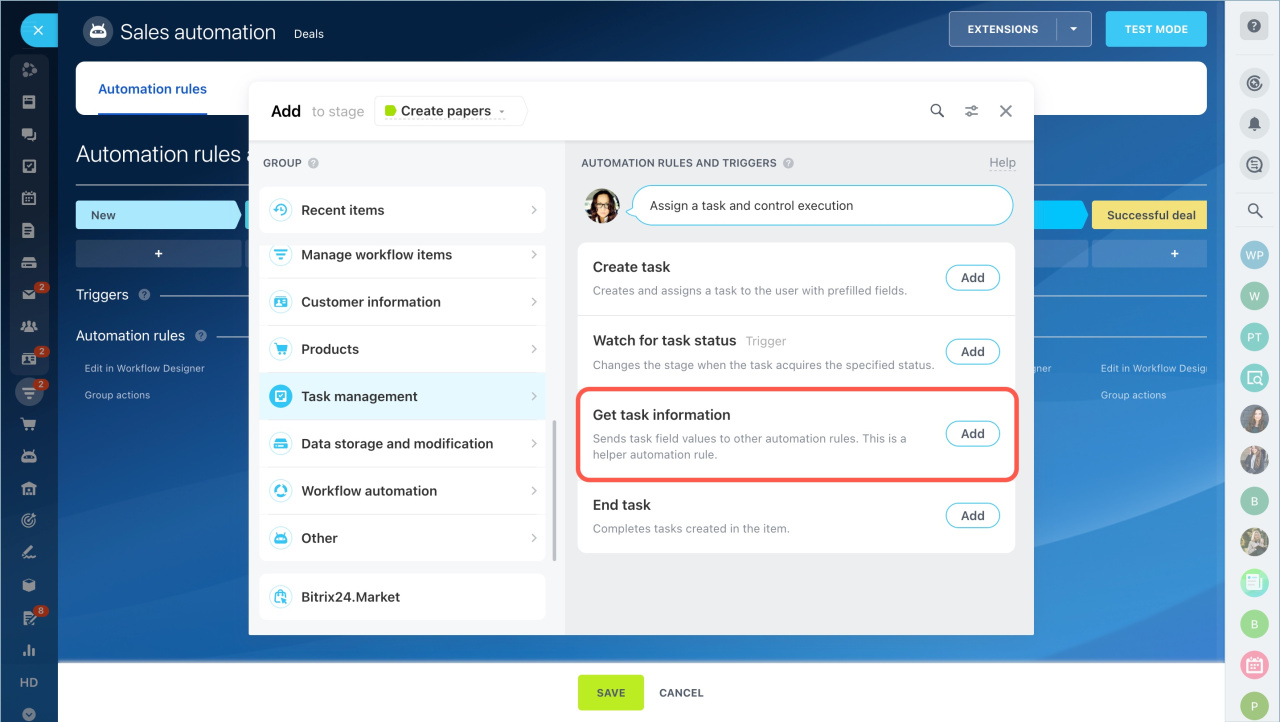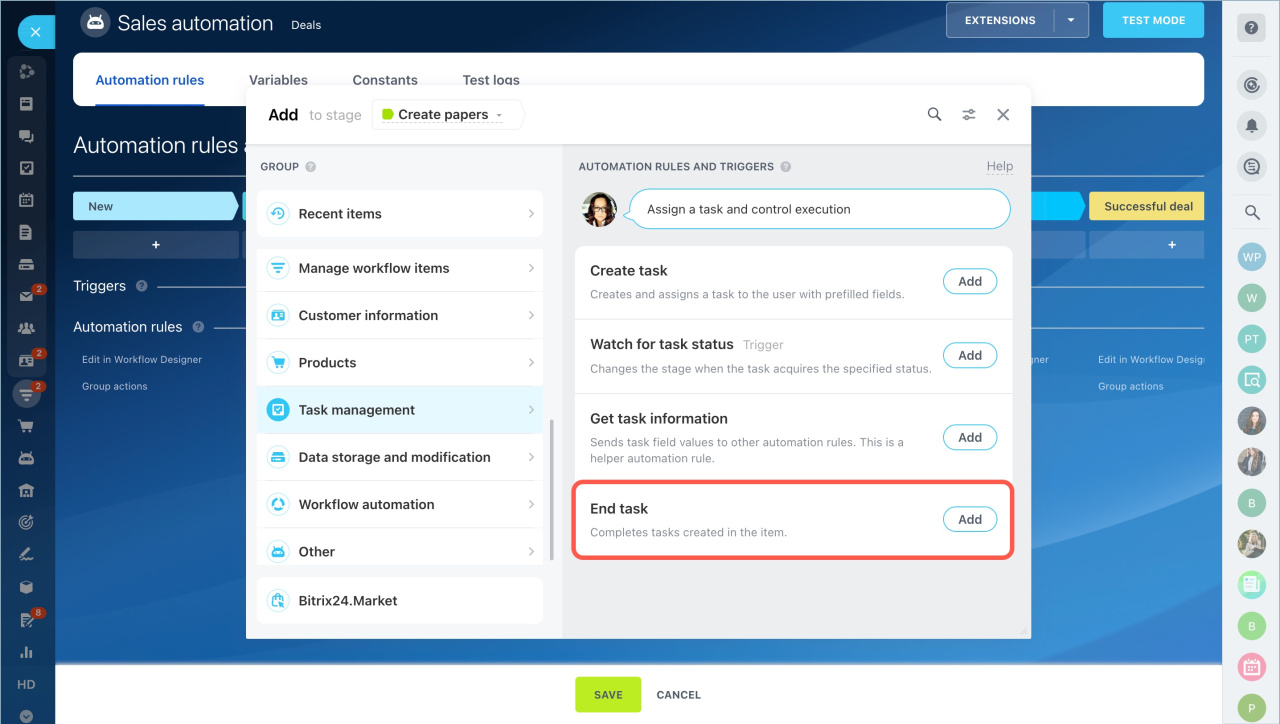Automation rules and triggers in CRM help automate different work scenarios. Automation rules perform routine actions, for example, send emails and chat messages, set tasks, create documents. Triggers track customer actions and changes in CRM - viewing an email, paying an invoice, changing the value of fields in a form. When the specified action occurs, the trigger will move the CRM item to another stage.
Automation rules in CRM
Triggers in CRM
To configure automation rules and triggers, go to the CRM section, select the desired item and open the Automation tab.
Add automation rules and triggers
Automation rules and triggers are grouped depending on the tasks they solve. We will tell you about the "Task Management" group:
Create task
When a CRM item reaches a certain stage, the automation rule creates a task: it adds a description and participants, specifies a deadline and other parameters.
"Create task" automation rule settings
Let's create an automation rule in deals at the specific stage. When the deal gets to this stage, the automation rule will set a task to prepare the project for the client.
Task name. To enable employees to quickly find the required task, add information from the CRM item form to the title: a deal name, a customer name, an order date.
Task description.Add information from the CRM item form: deal details, amount, etc.
Assignee. Select the employee who will perform the task.
Deadline. Specify when the task should be completed.
Time settings in automation rules
More. Specify additional task parameters. Add participants, a checklist, link the task to a workgroup, enable time tracking option, or add the task to a flow.
Create a task
Bitrix24 Flows: Get started
When a deal reaches the New stage, the rule creates a task. You can open it from the deal timeline.
The task assignee is chosen based on the flow settings, and the deal name automatically appears in the task name.
Watch for task status
A trigger changes the stage of a CRM item when a task linked with that item moves to a certain status. For example, when a manager completes a project preparation task, the trigger moves the deal to the project presentation stage.
"Watch for task status" trigger settings
Trigger name. Change the default name if you are configuring multiple triggers for different task statuses. This way you can quickly find the desired trigger on the customization page.
Status. Select a status. When the task moves to this status, the trigger will move the CRM item to another stage.
Task fields. To make the trigger work only for the required tasks, configure a filter. For example, the trigger will only work for tasks that have certain words in their names.
Change stage as. Select an employee. The timeline and CRM item form history will have a record of the stage change on behalf of this user.
Allow moving back to previous status. To allow the trigger to move an item to a previous stage, enable this option. For example, the trigger will move the deal from the last stage to the first one.
Get task information
This is a helper automation rule that takes information from the task fields and passes it to other automation rules.
Helper automation rules
"Get task information" automation rule settings
- Create task — when the deal reaches the stage, the automation rule will create a task for the lawyer to prepare the contract.
- Get task information — the automation rule will receive the task deadline information and pass it to the Modify details automation rule.
- Modify details - the automation rule will record the task deadline in the custom deal field.
Automation rules: Manage workflow items
Task ID. Specify the task ID that was previously created by another automation rule at the same stage.
Select fields. Check the fields in the list that the automation rule will receive information about.
End task
The automation rule automatically completes tasks created by other automation rules. For example, when a deal moves to a successful stage, the automation rule completes tasks created by automation rule in other stages.
"End task" automation rule settings
Complete tasks created in pipeline. Select a deal pipeline. The automation rule will complete tasks created by another automation rules in this pipeline.
End tasks created while in stage. Select a deal stage. The automation rule will complete tasks created by another automation rules in this stage.
Related articles:

